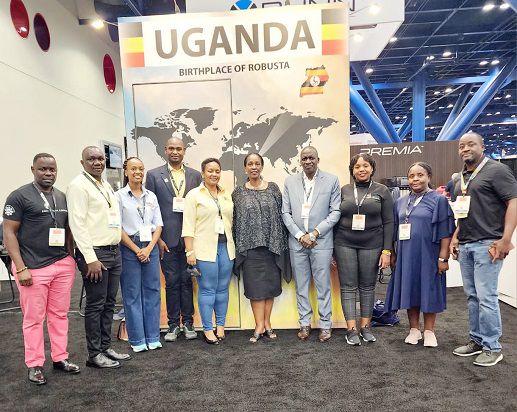This article was produced with the support of The Africa Singapore Business Forum
As global trade navigates turbulent waters, the partnership between Africa and Singapore is emerging as a model of mutual growth. Both regions are bridging capabilities to chart a sustainable future.
Four pillars are driving Africa-Singapore economic ties. The first is market diversification. Africa’s 1.3bn consumers, rapid urbanisation and rising digital adoption offer Singaporean firms a compelling expansion opportunity amid global trade uncertainties. The African Continental Free Trade Area (AfCFTA), with its $3 trillion combined GDP, is transforming the continent into the world’s largest free trade zone, reducing barriers and fostering intra-African commerce. “The AfCFTA enables greater market access, making Africa an attractive destination for Singapore companies,” Ghosh says.
Conversely, Singapore serves as a strategic hub for African businesses targeting Southeast Asia and broader Asian markets, leveraging its robust infrastructure and networks. “Singapore can be an effective base for African firms to access these destination markets,” he adds.
The second driver is a shared commitment to tackle climate change. Both regions face environmental vulnerabilities, spurring innovative partnerships. Recent Implementation Agreements, under Article 6 of the Paris Agreement, with Ghana and Rwanda—soon to be followed by others—facilitate carbon credit projects. These initiatives deliver high social impact in African host countries, reduce local carbon footprints and enable Singapore to offset emissions. “This collaboration channels technical expertise, green finance and project execution capacity between our regions,” Ghosh explains, noting the potential for scalable, high-impact projects.
Third, the reordering of global supply chains, driven by tariff wars and geopolitical disruptions, positions Africa as a vital manufacturing hub. Singaporean companies are already producing goods on the continent for domestic and export markets, with scope for further investment. The AfCFTA’s integration efforts are enhancing Africa’s role in global supply chains, creating opportunities for Singaporean firms to establish manufacturing bases and tap into the continent’s growing consumer demand.
Finally, a mutual drive for learning and growth underpins these efforts. Singapore’s journey from a developing to a first-world economy in a single generation resonates with African nations pursuing similar ambitions. At the governmental level, Singapore shares expertise in policy frameworks, financial management, investor attraction and enterprise development. At the enterprise level, Singaporean firms bring technical competence and execution know-how, forming partnerships that transform African visions into tangible outcomes. “Singapore’s development experience is relevant to Africa’s aspirations,” Ghosh says, highlighting the potential for knowledge exchange to drive progress.
Africa’s emergence as a manufacturing hub is a cornerstone of its economic transformation. The AfCFTA is creating a $3 trillion market, connecting 1.3bn consumers and fostering intra-African trade, which currently accounts for just 15% of the continent’s total trade. The United Nations Economic Commission for Africa (UNECA) projects a 35% increase in intra-continental exports by 2045, driven by reduced tariffs and improved infrastructure. For Singaporean investors, this presents a compelling opportunity to establish manufacturing bases to serve Africa’s burgeoning consumer market.
Ghosh emphasises the AfCFTA’s deeper impact: enabling production specialisation. As African nations develop expertise in specific sectors, economies of scale will lower costs, allowing suppliers to innovate and meet higher specifications. “Singapore companies are in discussions with partners to contribute to this reordered global supply chain,” he says. Varying US tariffs on African countries could further accelerate intra-African trade, reinforcing the continent’s role in global manufacturing. Singaporean firms, with their expertise in high-value manufacturing, are well-positioned to collaborate with African partners, creating win-win outcomes that enhance local economies and global supply chain resilience.
Enterprise Singapore, the city-state’s enterprise development agency, is at the forefront of fostering Africa-Singapore collaborations. With offices in Accra, Johannesburg and Nairobi, the agency connects businesses through meticulous demand-and-supply matching. “We seek to understand the need or problem statement, then identify Singapore firms or government agencies that can offer solutions,” Ghosh explains. This approach ensures partnerships are tailored to address specific challenges, from infrastructure development to digital transformation.
The agency’s on-the-ground presence provides nuanced insights into Africa’s microeconomic opportunities and risks. For Singaporean companies, this translates into balanced advice on operating challenges, hidden costs and margin planning, enabling informed investment decisions. Enterprise Singapore also leverages its extensive networks to pair Singaporean firms with credible African partners, fostering trust and collaboration. “Most Singapore companies seek to work with local partners to build their businesses on the continent,” Ghosh notes.
For African businesses, Singapore offers a gateway to Asia’s growth story. Enterprise Singapore supports African firms looking to diversify exports or expand into Southeast Asia by helping them establish operations in Singapore. “Their presence enriches Singapore’s business ecosystem,” Ghosh says. African companies can tap into Singapore’s free trade agreements, investment treaties, financial institutions and vibrant startup ecosystem to scale their ambitions, creating a two-way flow of opportunities.
Two sectors hold immense potential for Africa-Singapore collaboration: the digital economy and the green economy. Africa’s digital transformation is unlocking efficiencies, transforming businesses and expanding access to services. In fintech, solutions for low-cost, cross-border remittances are critical for Africa’s mobile workforce. In education and healthcare, technology enables broader delivery of essential services; while, in logistics, digital tools enhance asset integrity and inventory management across vast distances. Singapore’s expertise in digital innovation positions its firms to meet these needs in partnership with African counterparts, driving inclusive growth. In the green economy, Africa’s abundant natural resources create opportunities in agriculture, clean energy, sustainable materials, e-mobility and energy-efficient buildings.
Carbon credit projects, spurred by recent Implementation Agreements, exemplify this collaboration. These initiatives reduce Africa’s carbon footprint, create local social impact and support Singapore’s net-zero goals. “Singapore developers are keen to collaborate with African partners to deliver sustainable solutions,” Ghosh says, highlighting the potential for scalable, high-impact projects that align economic and environmental objectives.
The Africa Singapore Business Forum (ASBF), organised by Enterprise Singapore, is a cornerstone of Africa-Singapore engagement. Held biennially since 2010, the forum has convened over 5,000 attendees from more than 50 countries, fostering networks and catalysing investments. The eighth edition runs from 26–28 August 2025 in Singapore, and is themed “Bridging Capabilities, Charting Sustainable Growth”. It will feature expert panels on energy transition, consumer trade, digital technology, manufacturing, supply chains and smart cities, alongside business matching sessions to spark partnerships.
“ASBF is a platform to discuss trends, share insights and build strategic collaborations,” Ghosh says. As businesses navigate complex global trade conditions, the forum offers a vital space to diversify markets and seize opportunities in traditional and emerging sectors, reinforcing the Africa-Singapore economic corridor.
The Africa-Singapore partnership exemplifies the power of collaboration in addressing global challenges. By leveraging Africa’s market potential and Singapore’s expertise, both regions are forging a path to sustainable prosperity. Enterprise Singapore’s efforts, through market insights, partnerships and platforms like ASBF, are laying the foundation for a vibrant economic relationship that promises to shape the future.










